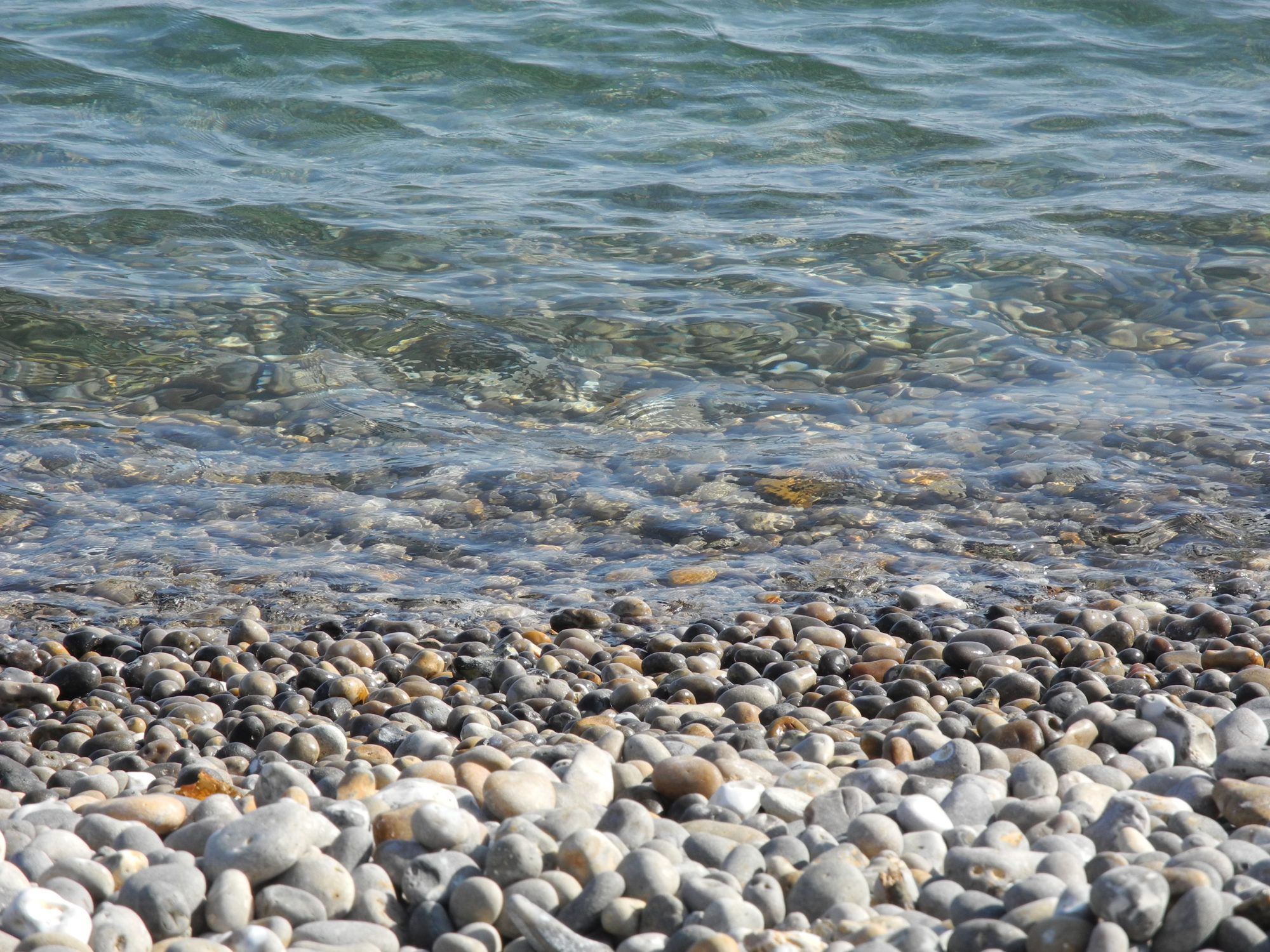Autumn is the time for big bass and Olie Passmore got his campaign underway with this cracking fish of 7lb 8oz taken on a big mackerel bait.
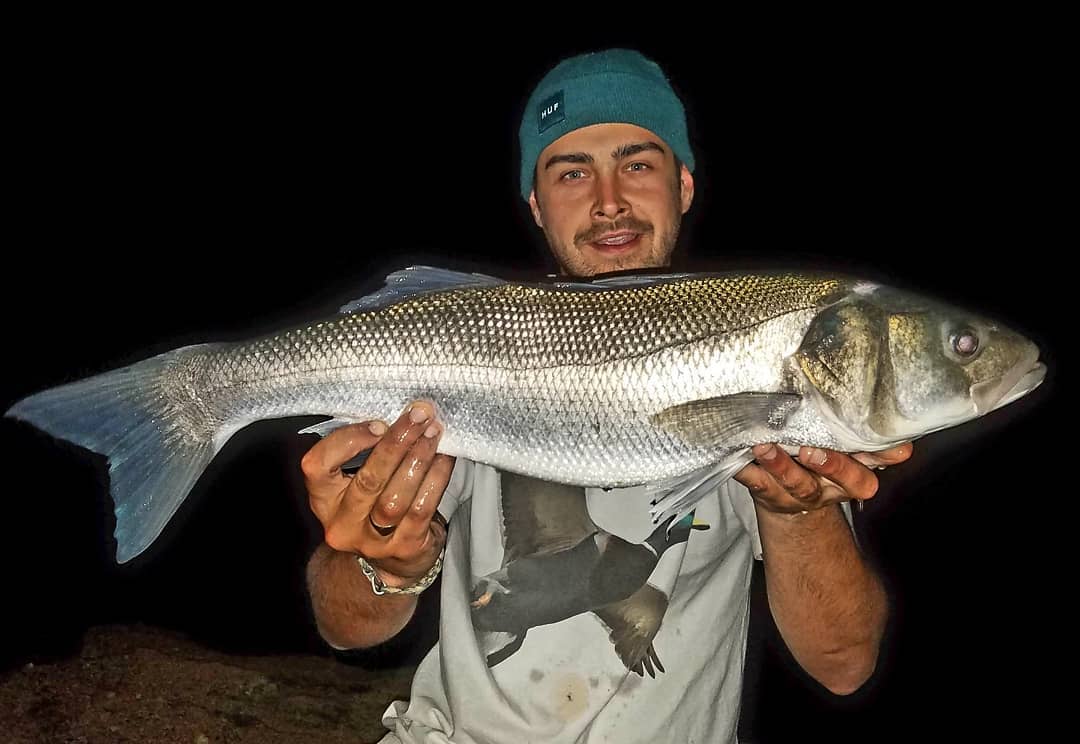
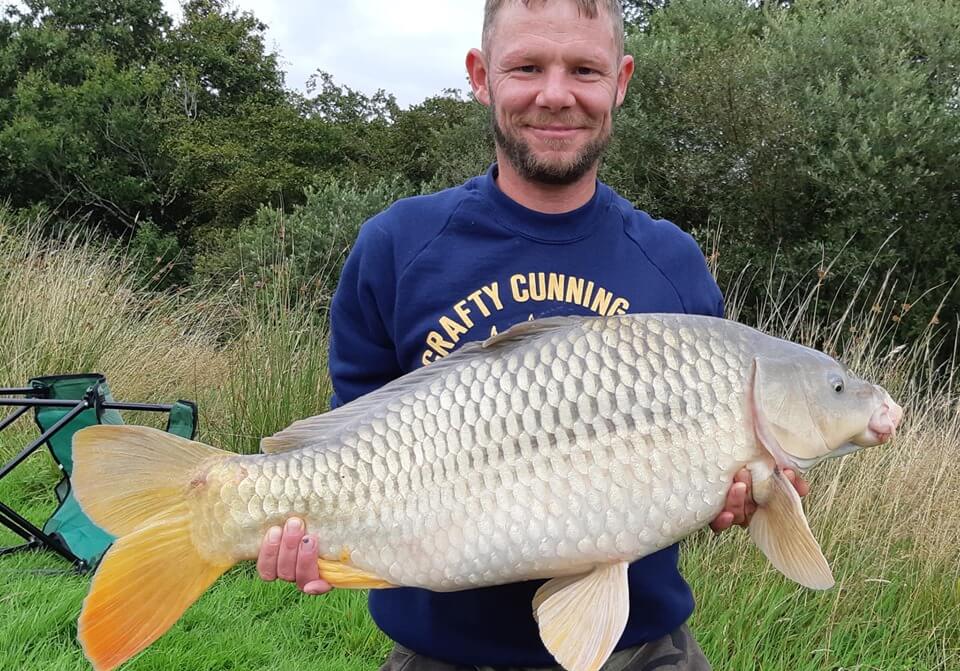
(Above) The newest 5C’s Member Dean Garland caught a 23lb 6oz Common from Nirvana’s day ticket Xanadu Lake.
Dean shared – “After being rained off from work on wednesday, I turned up at anglers paradise knowing I’d be fishing 1 of the day ticket lakes but not sure which 1. After speaking to Richard in the shop, I decided to go down to xanadu. I had un-finished buisness with this lake…I have caught some stunning carp from there previously but the 20 pluses had always evaded me!
After a quiet first day and night and the possibilty of going home blanking i decided to change a few things up. Within 30 minuites my rod went off.
It fought very hard and i knew i was in to a decent fish. And when i pulled it out i saw why, it was like the fish hadn’t grew into its own fins.
It weighed in at 23.6 lbs and seriously was in prestine condition. Gorgeous fish. Safe to say it made my session!!”
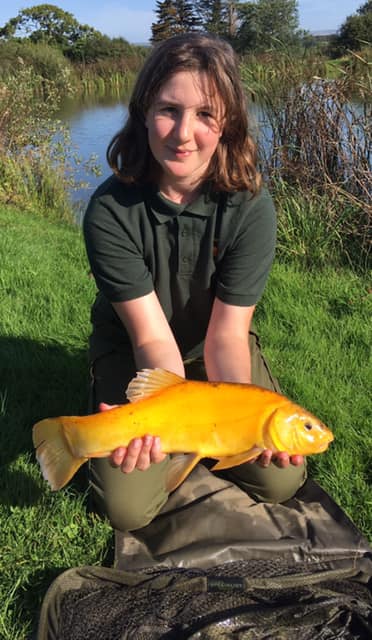
(Above) Pheobe Deacon has been coming to Anglers Paradise with her Mum and Dad for years but normally doesn’t fish until this year…And now she’s hooked! She managed to catch this amazing personal best 5lb 1oz Golden Tench too!
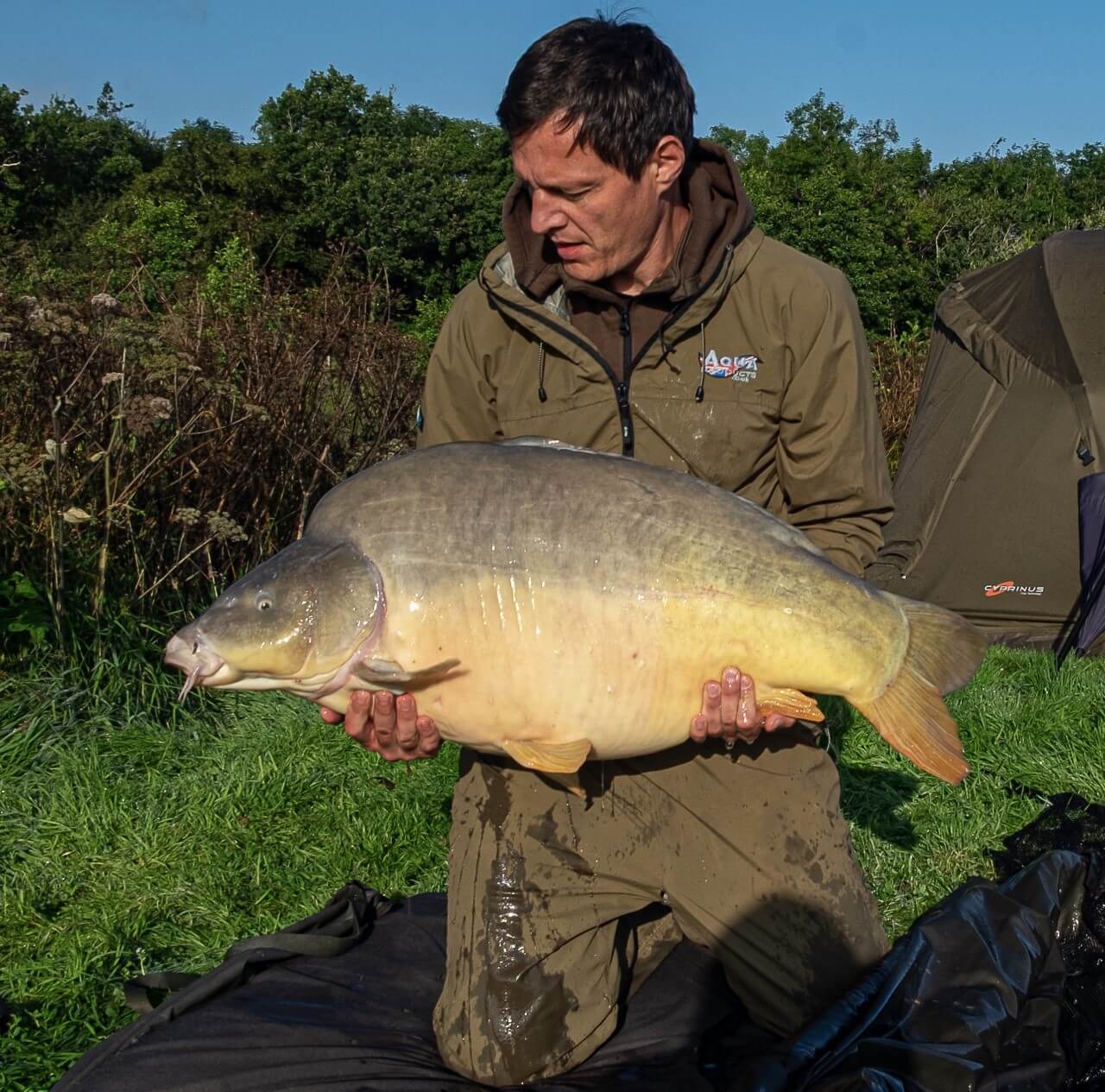
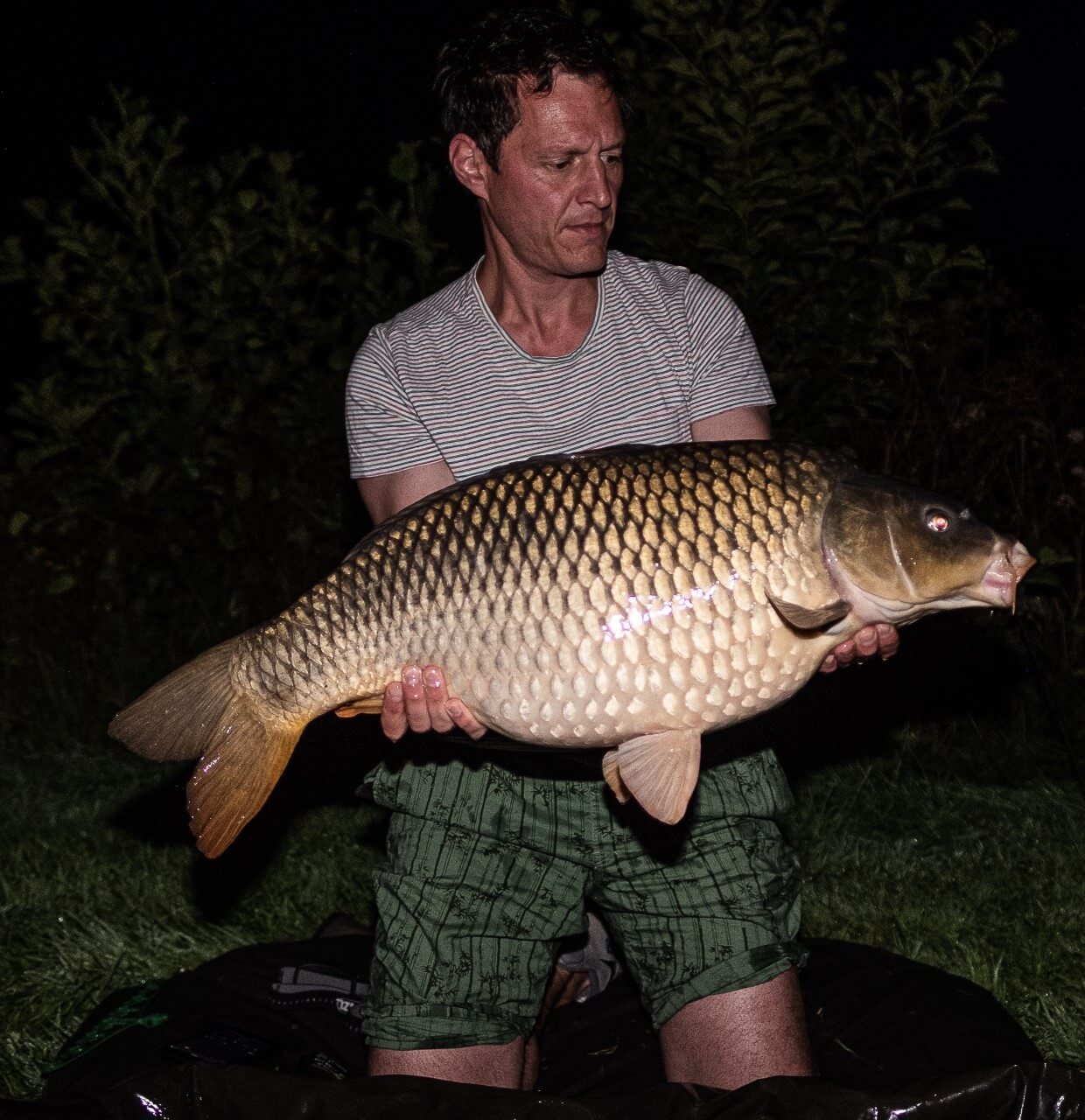
(Above) Nick Dudaniec not only won fish of the week with Silverback at 52lbs but he also caught a 26lb 8oz Common and 30lb Mirror during his epic session on Nirvana’s Kracking Carp Lake. Nick caught all fish using Essential Baits Shellfish B5 boilies fished over hemp and sweetcorn.
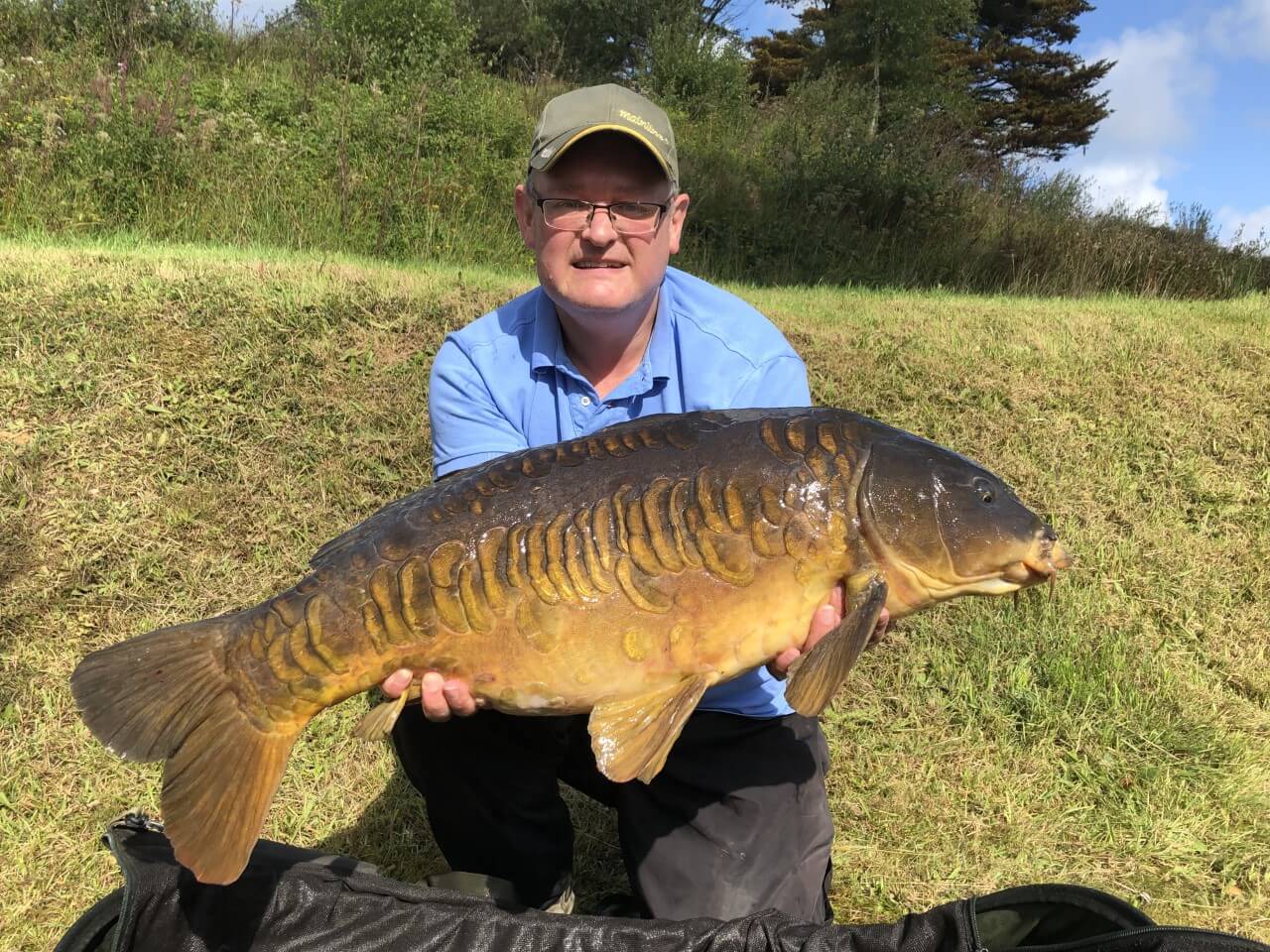
(Above) Rob Steele caught this 24lb Mirror Carp from the Specimen Carp Lake using a hinge stiff rig with Cell as the hookbait. He said it’s one of the prettiest fish he’s ever caught.
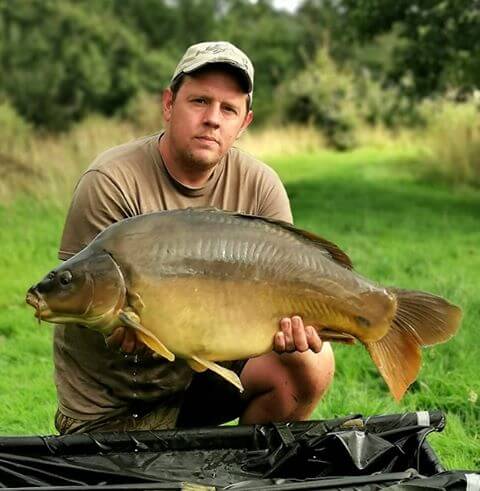
(Above)Paul Richmond from Plymouth fished the Kracking Carp Lake and had this stunning personal best 31lb 4oz Leather Carp from peg 1.
Paul was using a bloodworm pop up trimmed down topped off with pop up corn. Using minimal bait, a few handfuls of corn crushed boilie and 4mm pellet.
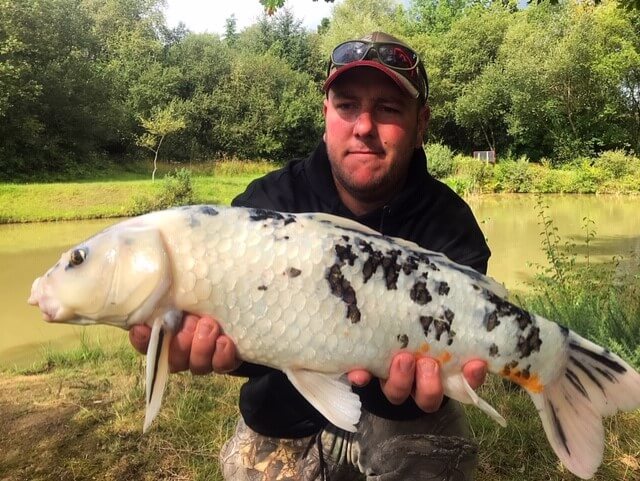
(Above) Dean Wyatt caught this absolutely stunning 6lb 6oz Koi from our famous Koi Lake, it may not be the biggest fish, but size is irrelevant when they look like this especially!! And you know the saying…Size doesn’t matter!!! He caught the beauty on a 12mm Nash strawberry crush boilie. Dean also won our Fish of the week competition with this beautiful catch!
SON OF SILVERBACK AND 1ST EVER CATFISH!
Well done to Aaron Trethewey who caught what looks like Silverback’s son – a 10lb 14oz Mirror and his first ever Catfish at 21lbs 6oz both from the Easy Access Lake.
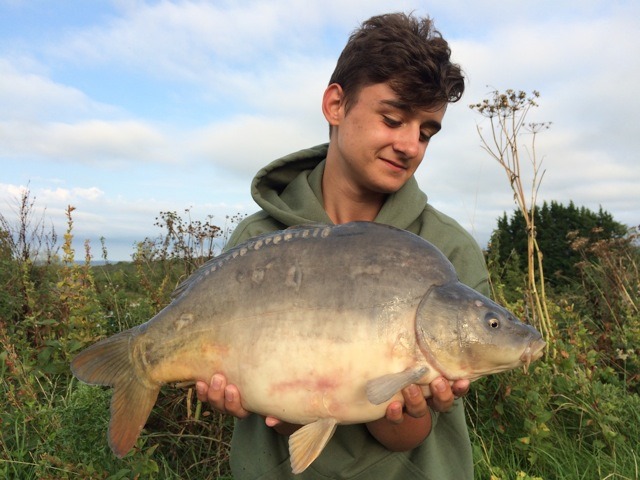
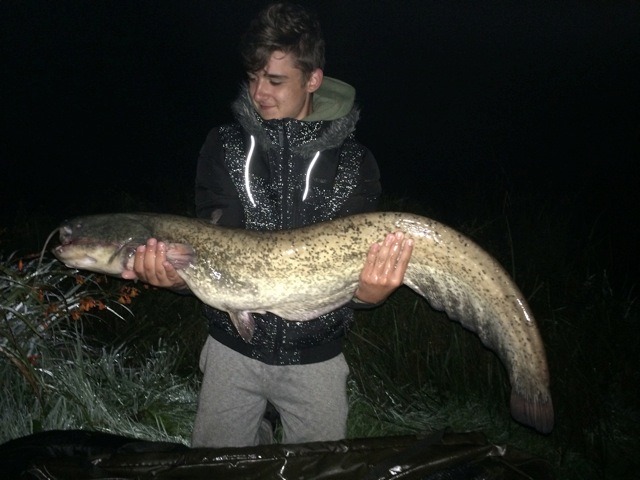
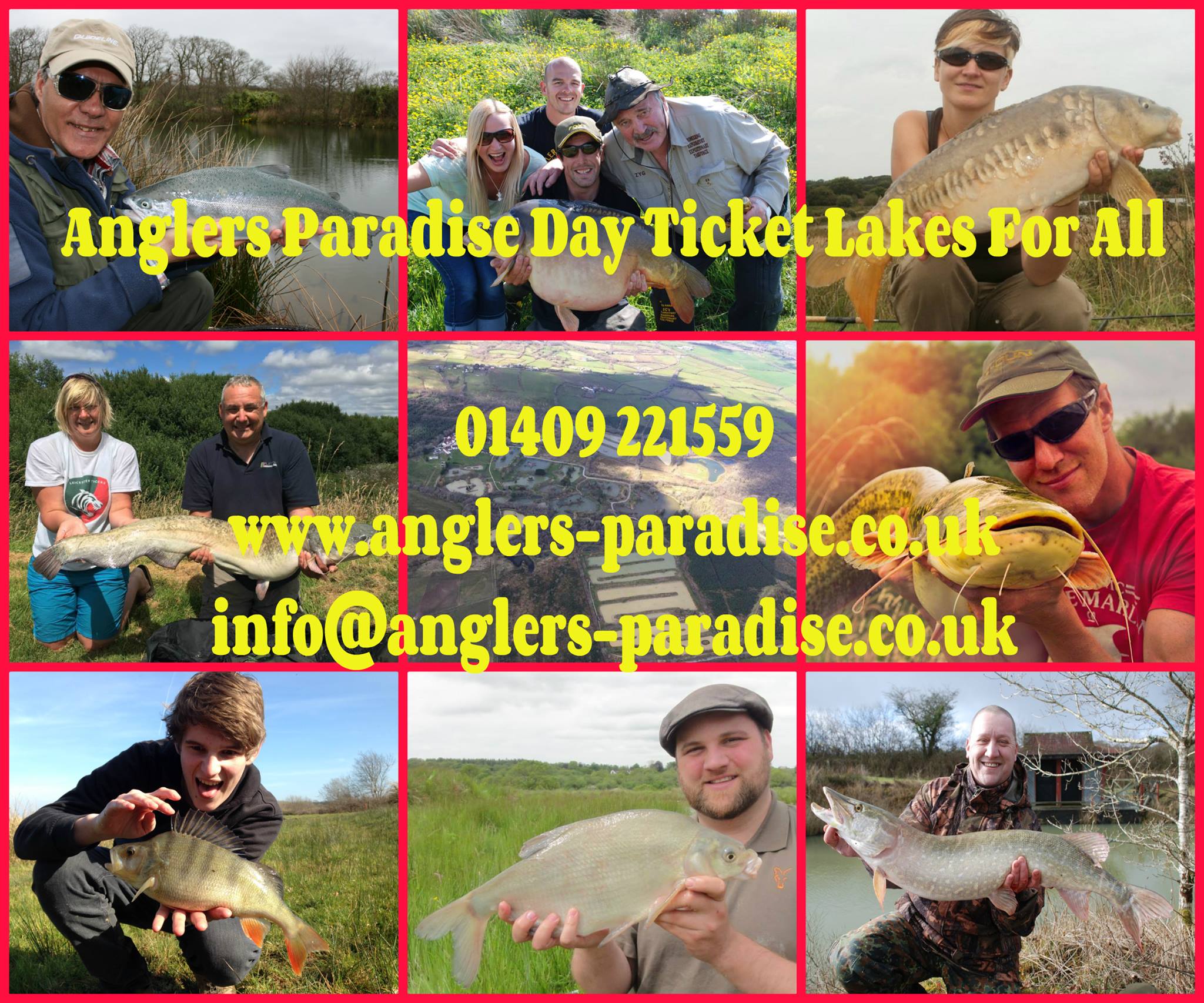
North Devon Match Group Summer League. No 6 @ Lakeview Morchard Road Results :
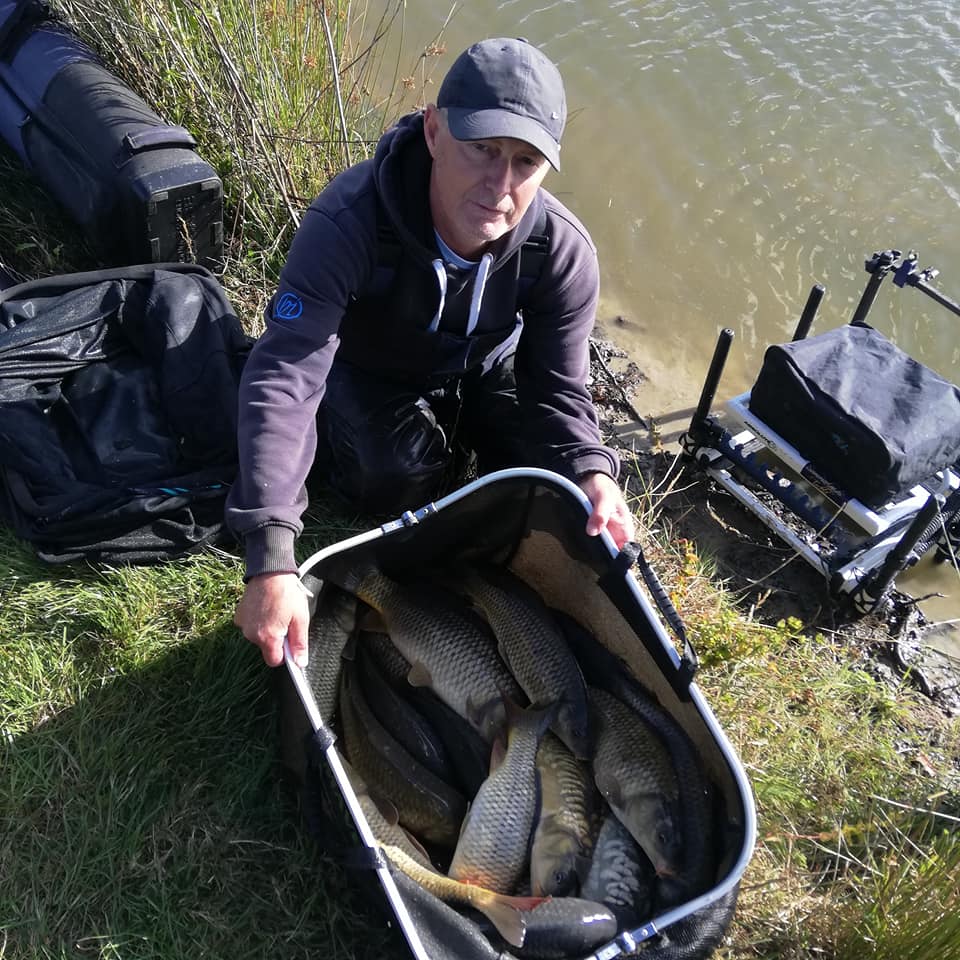
1st Neilsen Jeffery 100lb 10oz
2nd Simon Maunder 86lb 10oz
3rd Wayne Murton 72lb 8oz
4th John Lisle 69lb 5oz
5th John Bailey 59lb 9oz
Neilsen Jeffery drew end peg on the main road side and caught steadily in the margins on a short pole using banded pellets. Simon Maunder drew on peg 1on the first point and also caught on the pole with pellets. Wayne Murton’s third place was a 30 fish net on the long pole. Conditions were bright with a North Westerly breeze. Paul Elworthy has won the Summer League with 120 points.
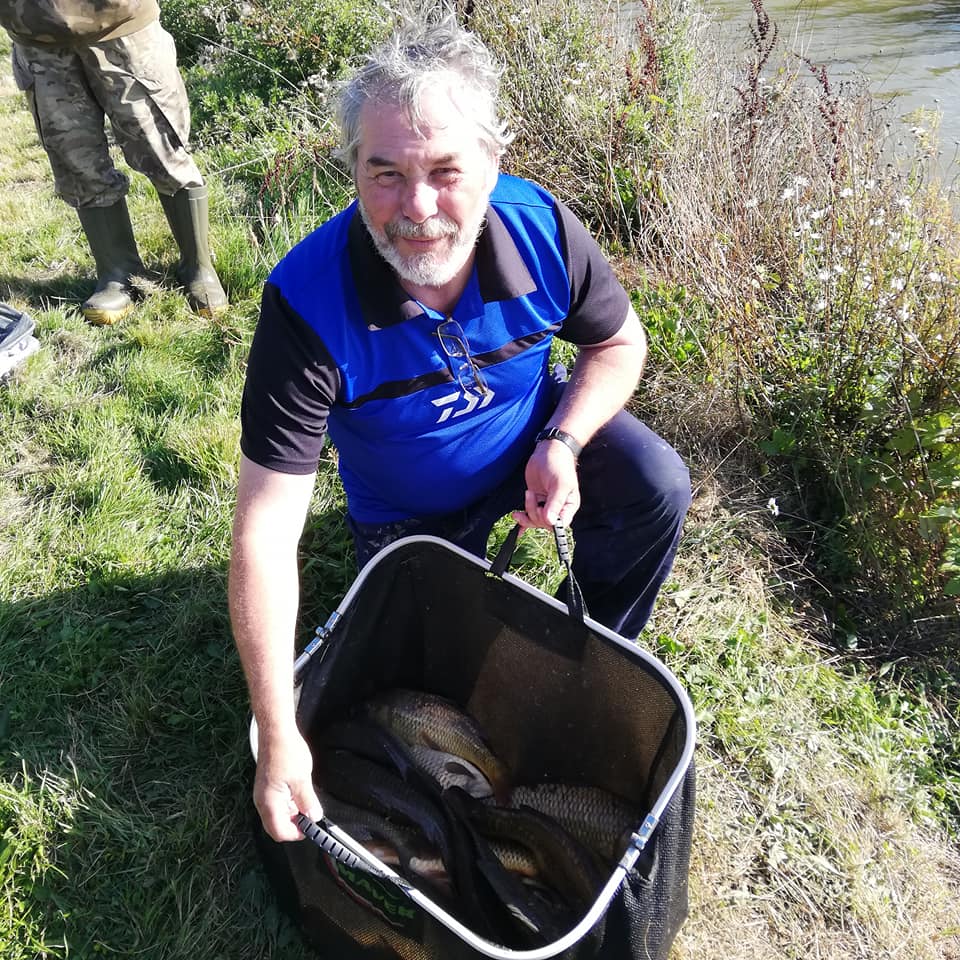
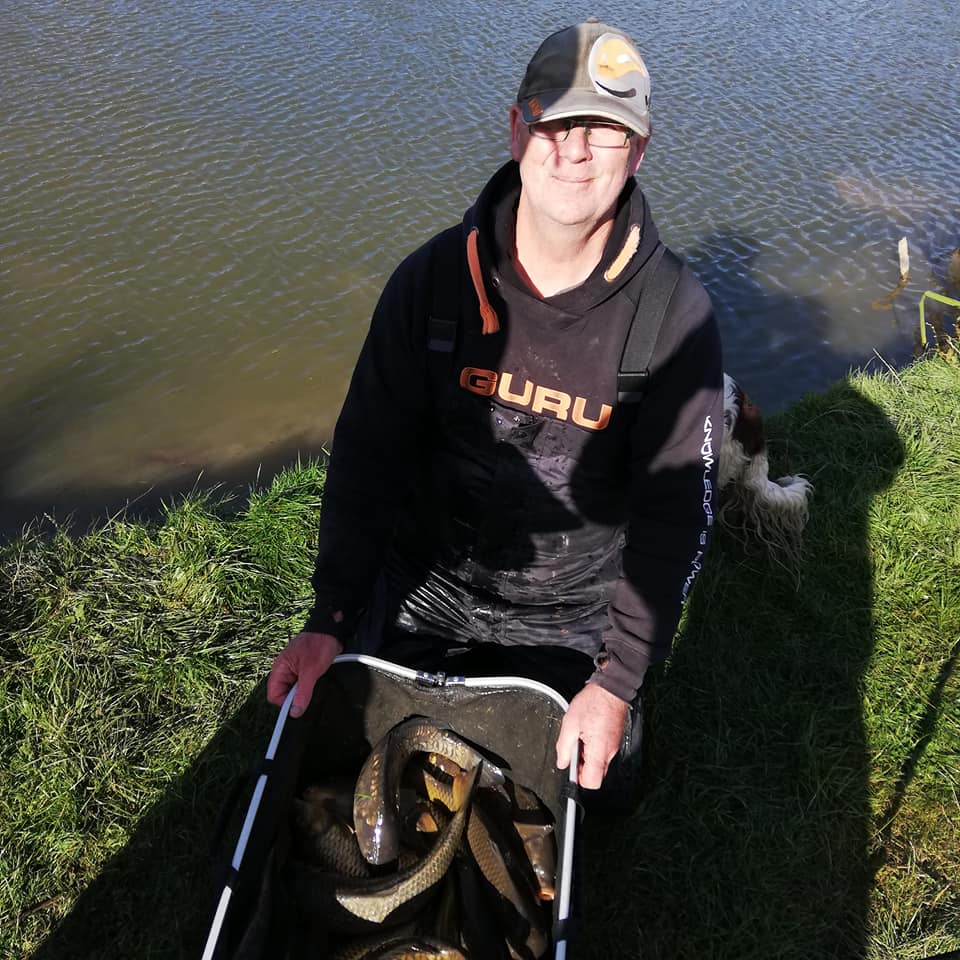
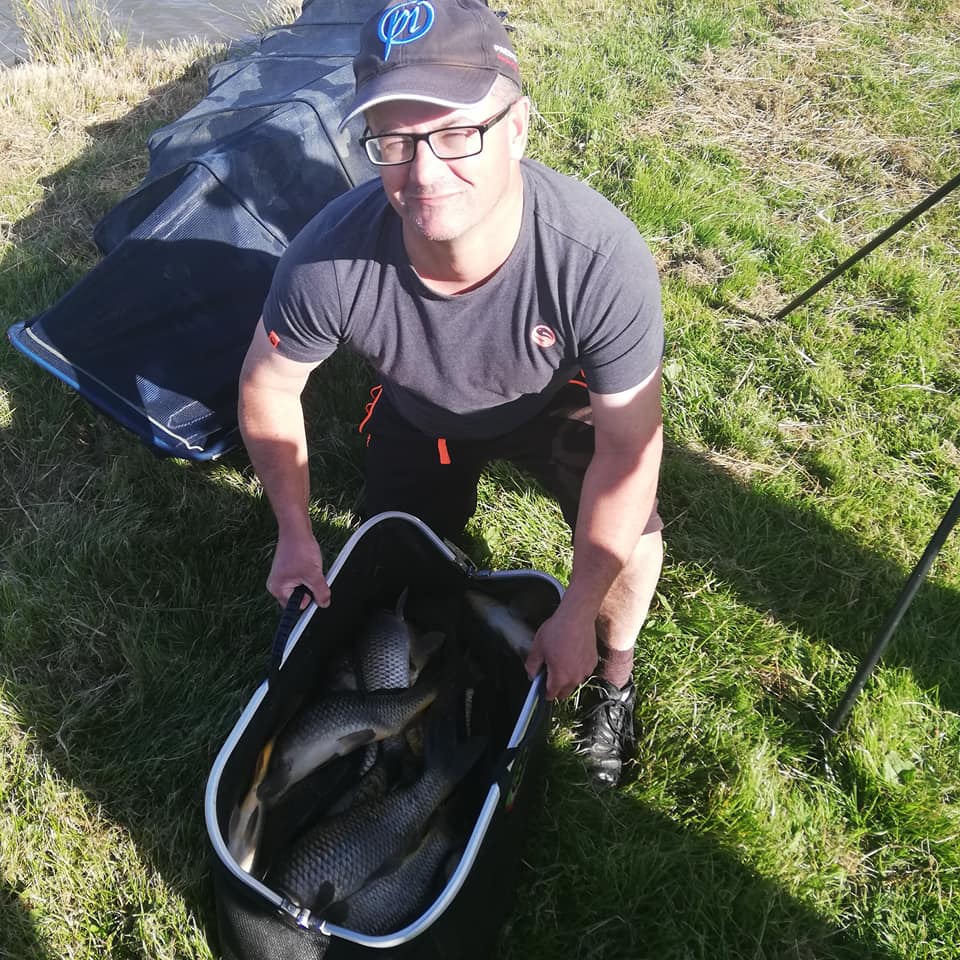
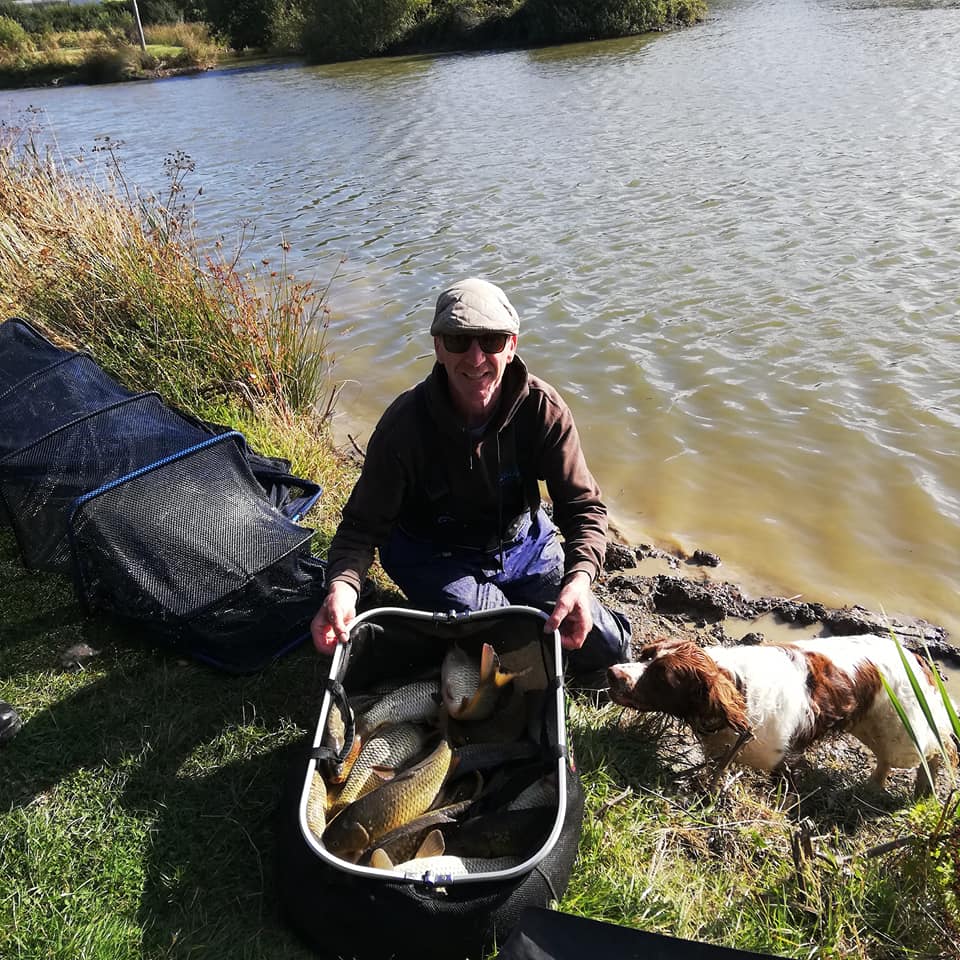
Stephen Found secured top spot in Bideford Angling Clubs Monthly Sea Rover with a specimen thick lipped grey mullet of 4lb 63/4oz. In runner up spot was Julien Stainer with a conger of 19lb 111/2oz and third Paul Downing with a dogfish of 2lb. Forth Terry Dymond with a wrasse of 3lb 5oz.
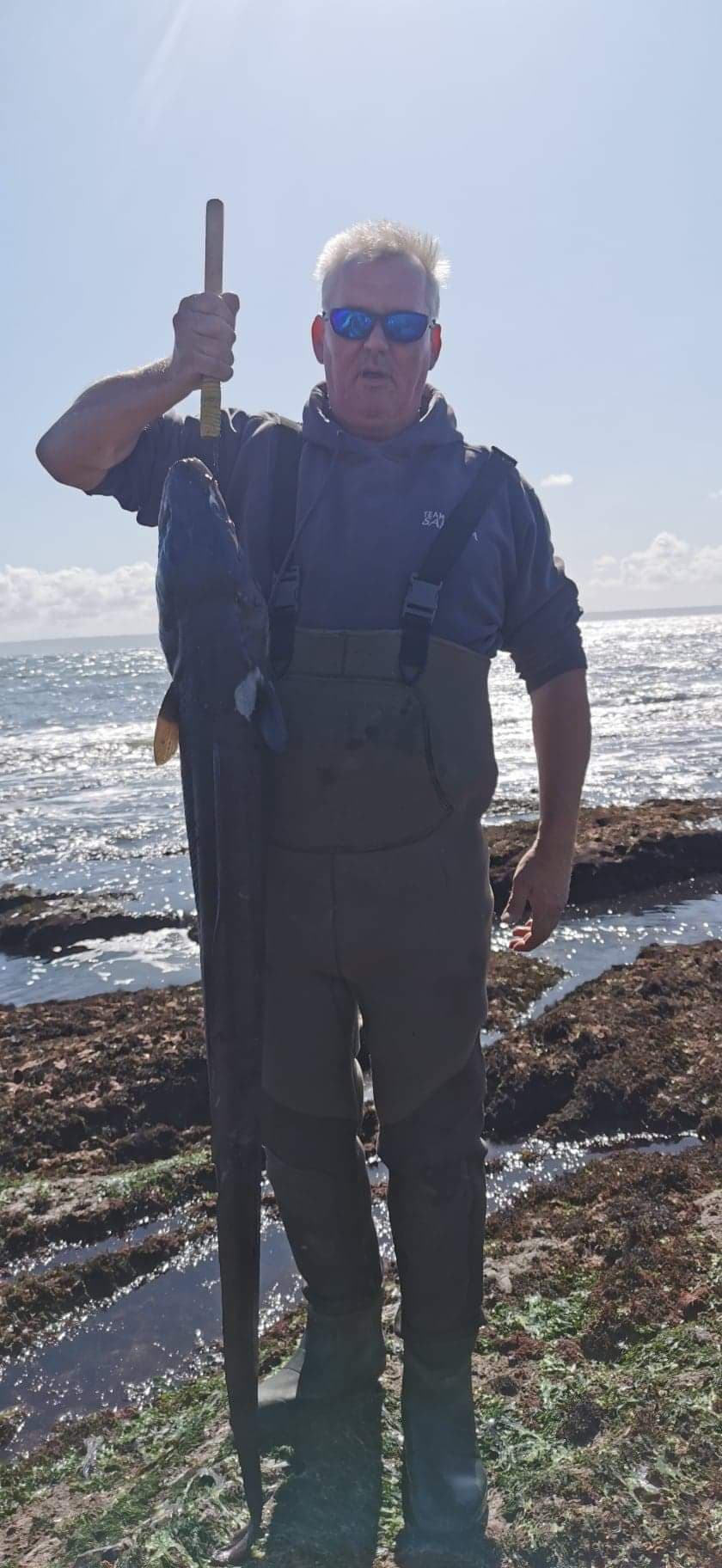
Josh Atkinson took first and second in Appledore Shipbuilders monthly rover with small eyed ray scaling 9lb 12oz and 8lb 3/4oz. In third was Chris Slade with a smoothound of 9lb 123/4oz.
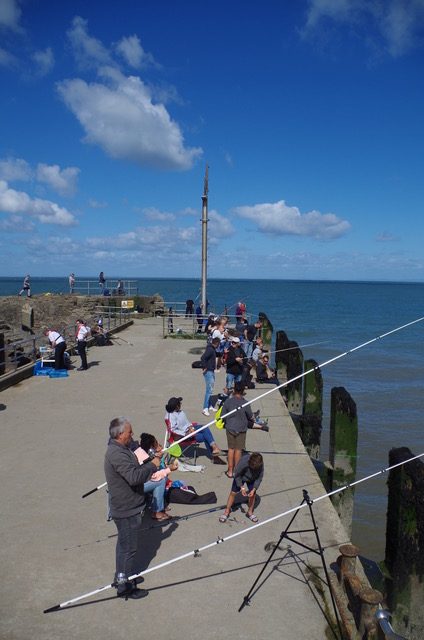
Combe Martin SAC’s Annual Fun Fish at Ilfracombe Pier has become a popular event within the Sea Ilfracombe Maritime Festival and this year was no exception with thirty fun fishers taking part.
Once again the weather played its part in the success of the event with warm sunshine throughout. A moderate North West breeze was fortunately at the participants backs helping the lines to blow away from the pier’s structure with a good drop to the water on one of the lowest tides of the year.
This is as it says on the box a fun fishing event with minimal rules. The competitive element is based on catching the most species with the top prizes in the points section reserved for under 18’s with adults picking up the remaining prizes. There are also prizes for the longest fish and heaviest fish. The main reward for those taking part is the social interaction and the broad beaming smiles on anglers faces.
Combe Martin SAC give thanks to High Street Tackle, Ilfracombe for their generous support of the event with an array of great prizes donated. Thanks also to Ilfracombe Aquarium who donated the family prize and engaged with participants in fish identification.
Our special guests on the day were Steve Dawe author of the book “Fishty Two weeks In A year”. A book that tells of Steve’s year long quest to catch as many species within twelve months as possible all in the cause of raising money for the stroke association.
Colin Wood and Alex Bond represented Ilfracombe Coastguard and mingled with the visiting public to talk about their valuable work as an emergency service co-ordinating rescues along the coast and beyond. Safety is of course top of their agenda with advice on good practice and safety aids readily available.
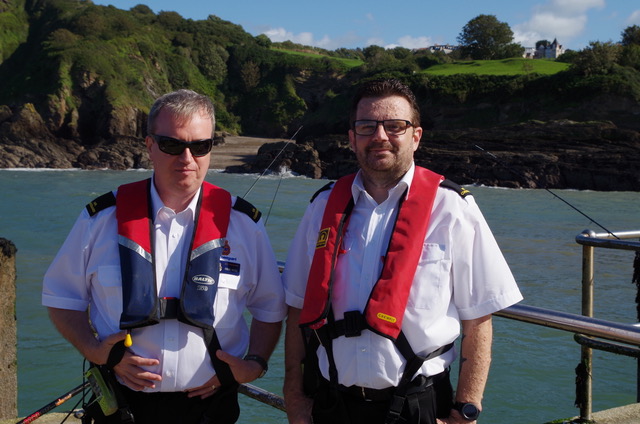
The fishing proved to be challenging at times with the water coloured due to the low tide and brisk NW wind leading up to the event. Plenty of fish were caught however with a very wide variety of species including a few rarities. Young Solly Welch enjoyed an exceptional day with a little help from mum, dad and grandad. Solly landed an incredible eight species including a rare Cornish clingfish, red mullet, dragonet, rock goby, ballan wrasse, corkwing wrasse, smelt and pouting. There was also a little drama when a pouting that had succumbed to his bait was seized by a conger eel that held tightly onto its prey before letting go when it saw the waiting landing net!
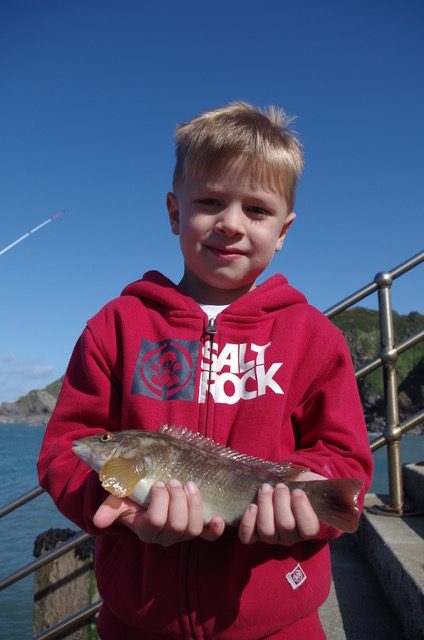
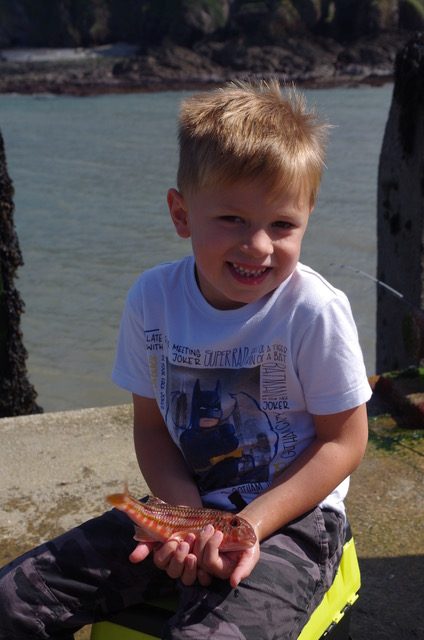
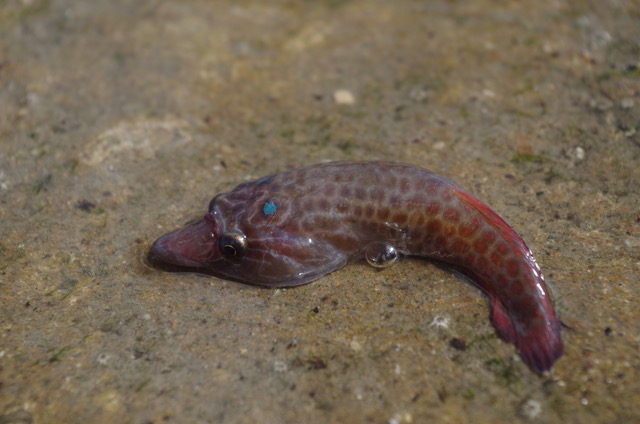
Several crustaceans were also landed including two lobsters and a good sized edible crab for Danny Watson. These were not eligible for prizes but I think there could be a prize introduced next year for the most exceptional non piscatorial catch. In the past there have been octopus caught and this year one angler lost contact with a substantial oar that battled gamely twisting and turning in the tide before coming adrift.
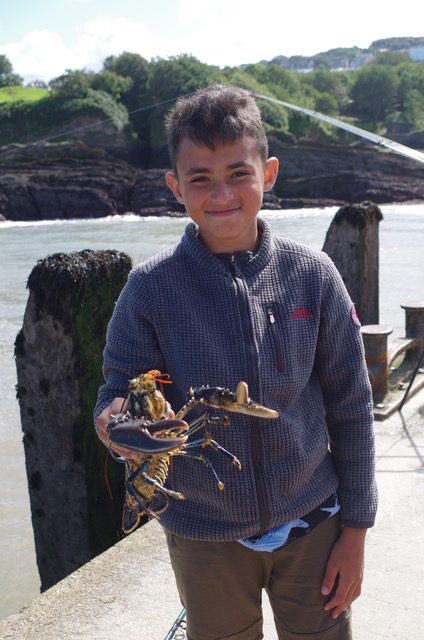
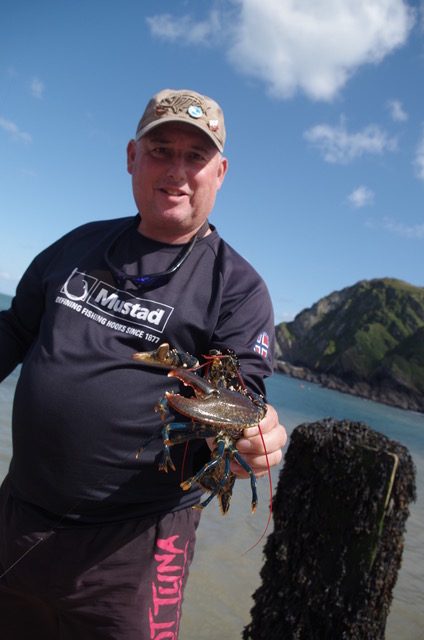
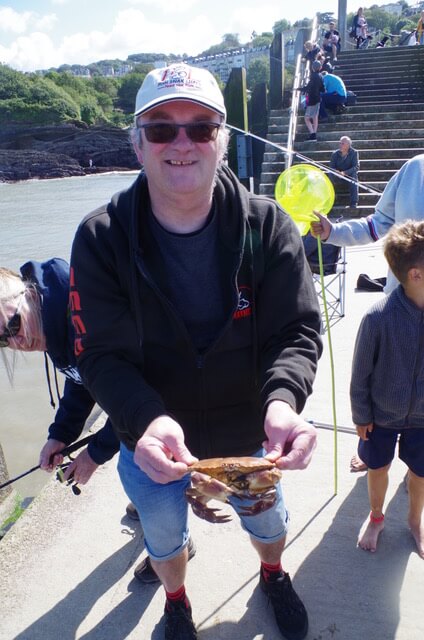
The Welch family were way ahead of the field amassing a grand total of 38 points to receive a family visit to the aquarium where they can visit the clingfish caught by young Solly and donated to the aquarium.
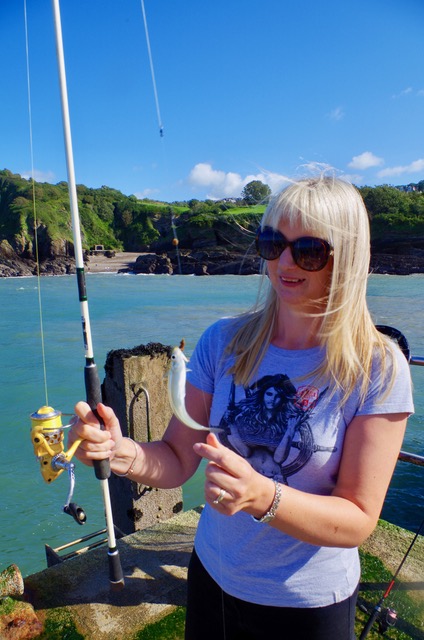
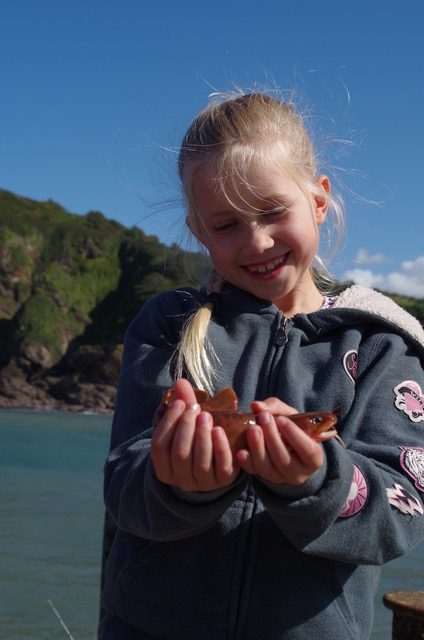
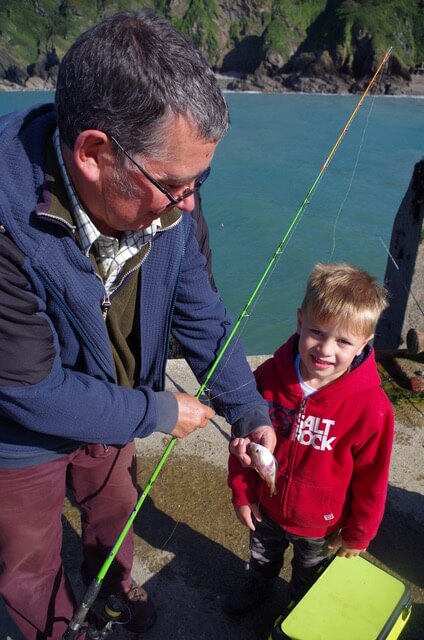
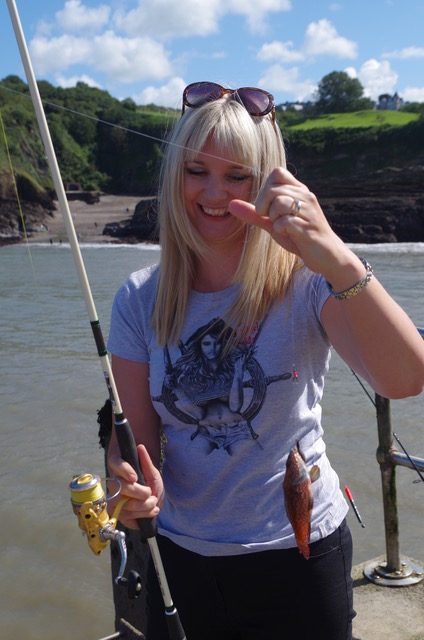
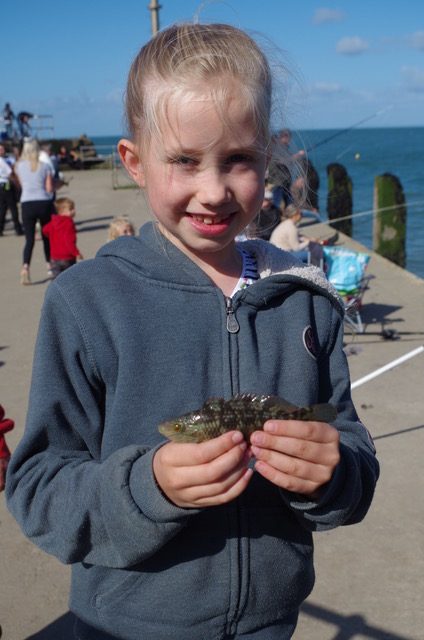
The longest fish was a 43cm garfish tempted by Matt Jeffery and the heaviest a ballan wrasse of 11oz to the rod of Matthew Dawe.
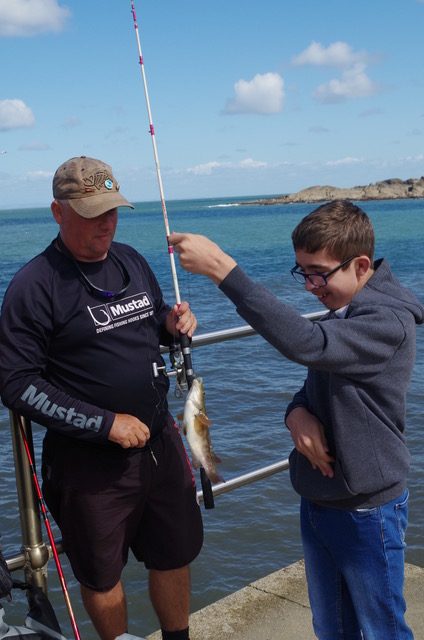
As part of Sea-Ilfracombe a big part of the event is the social interaction as members of the public wonder amongst the anglers to gaze at the catches and chat enjoying the ambience of the seaside and fun of the fishing.
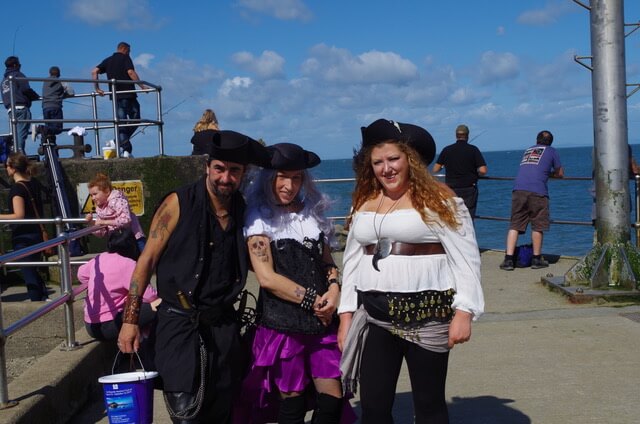
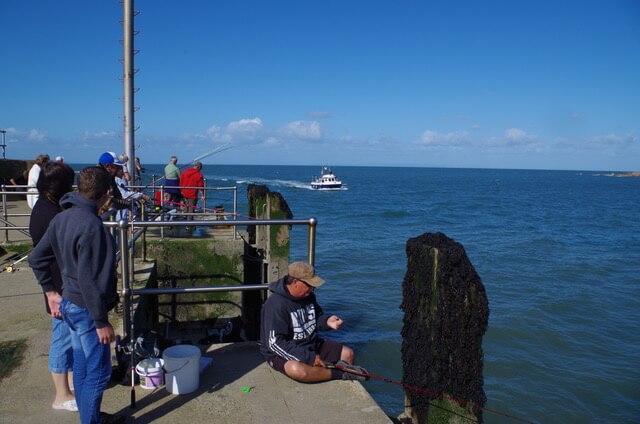
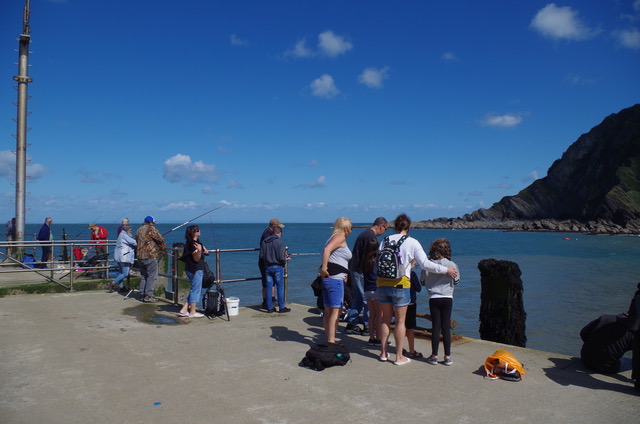
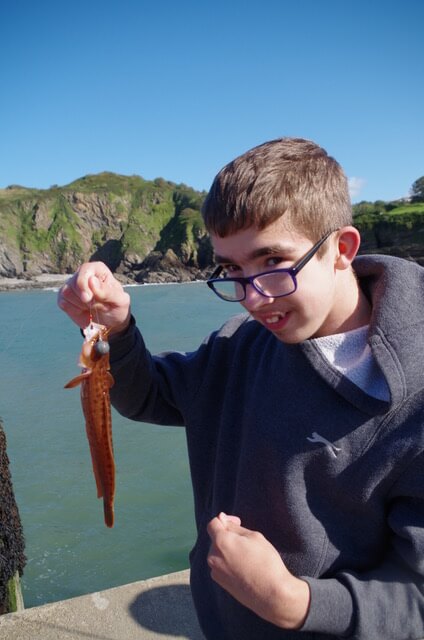
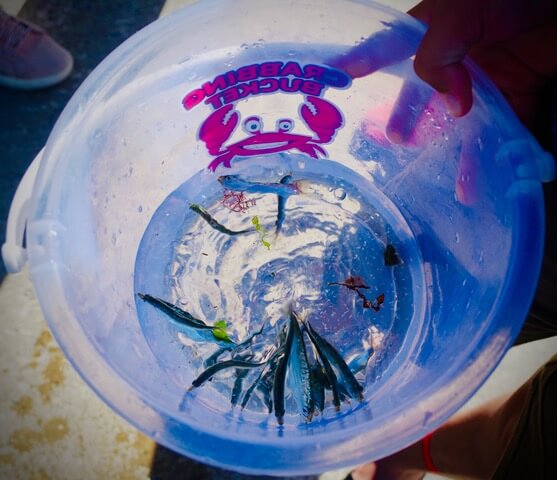

Smile of the day had to go to young Scarlett Hart who tempted a scorpion fish just before the call for all in was broadcast. Persisting throughout the day Scarlett was absolutely delighted when the fearsome looking mini species seized her bait.
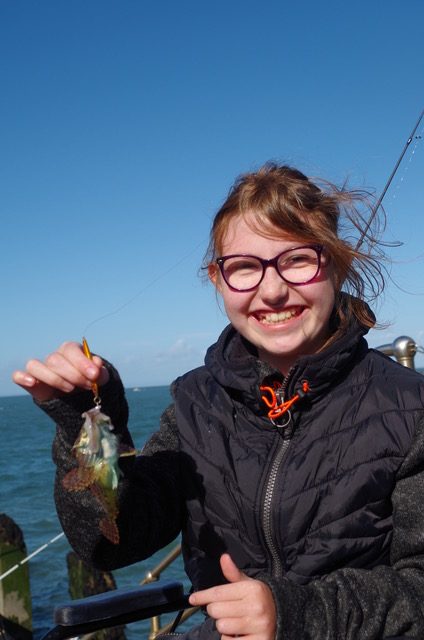
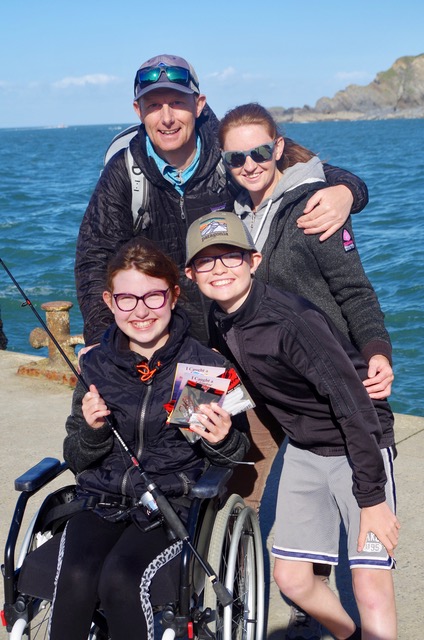
Always seems a bit sad to see the dismantling of the festival props as I drive away knowing that another summer has drifted past all too quickly. The best of the years fishing lies ahead though so embrace the coming autumn and get out there fishing.
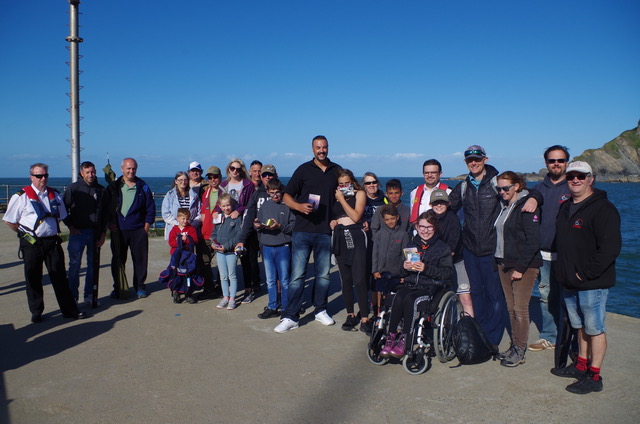
The Fun Fishing Event signalled the conclusion of Comb Martin SAC’s summer lure fishing competition that was won by Rob Scoines with a fine boat caught bass of 8lb 8oz.
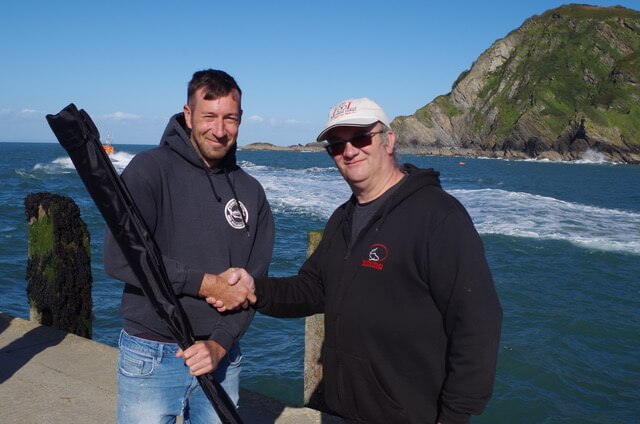
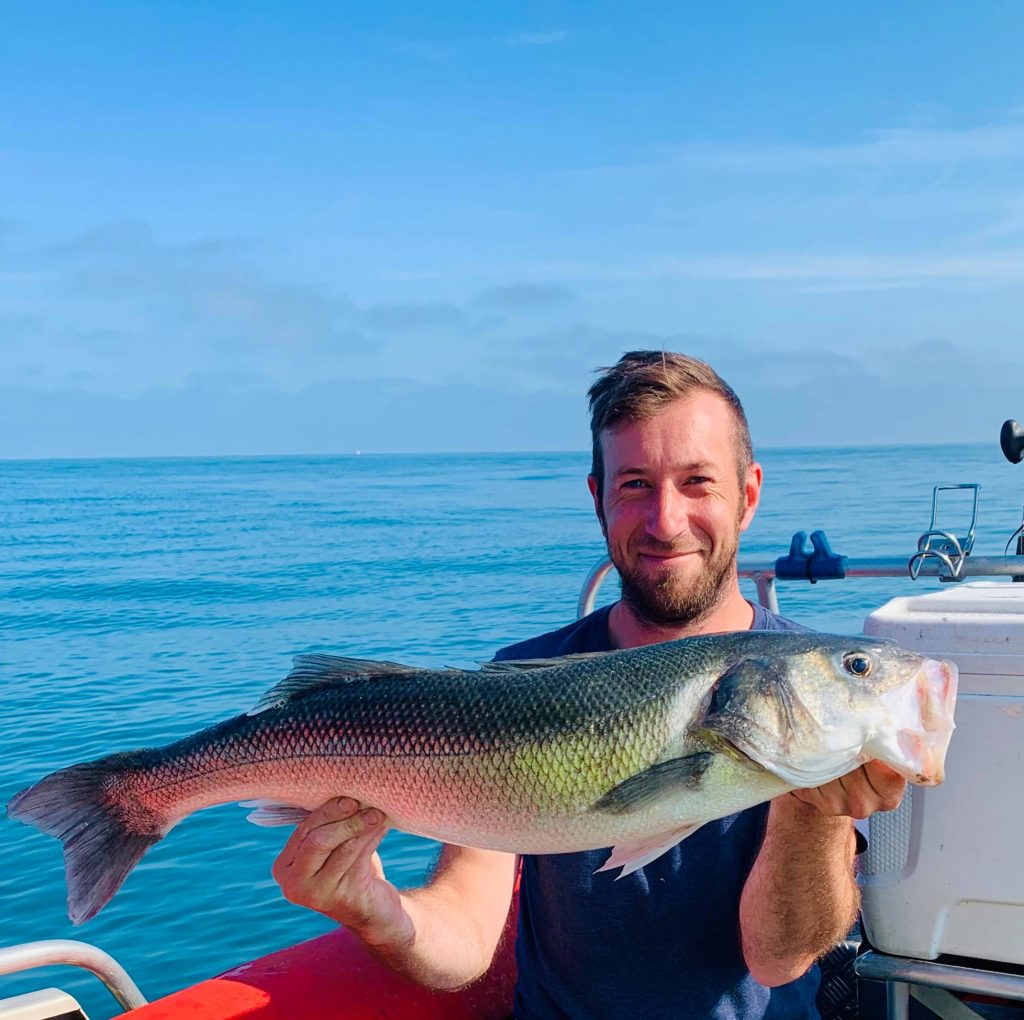
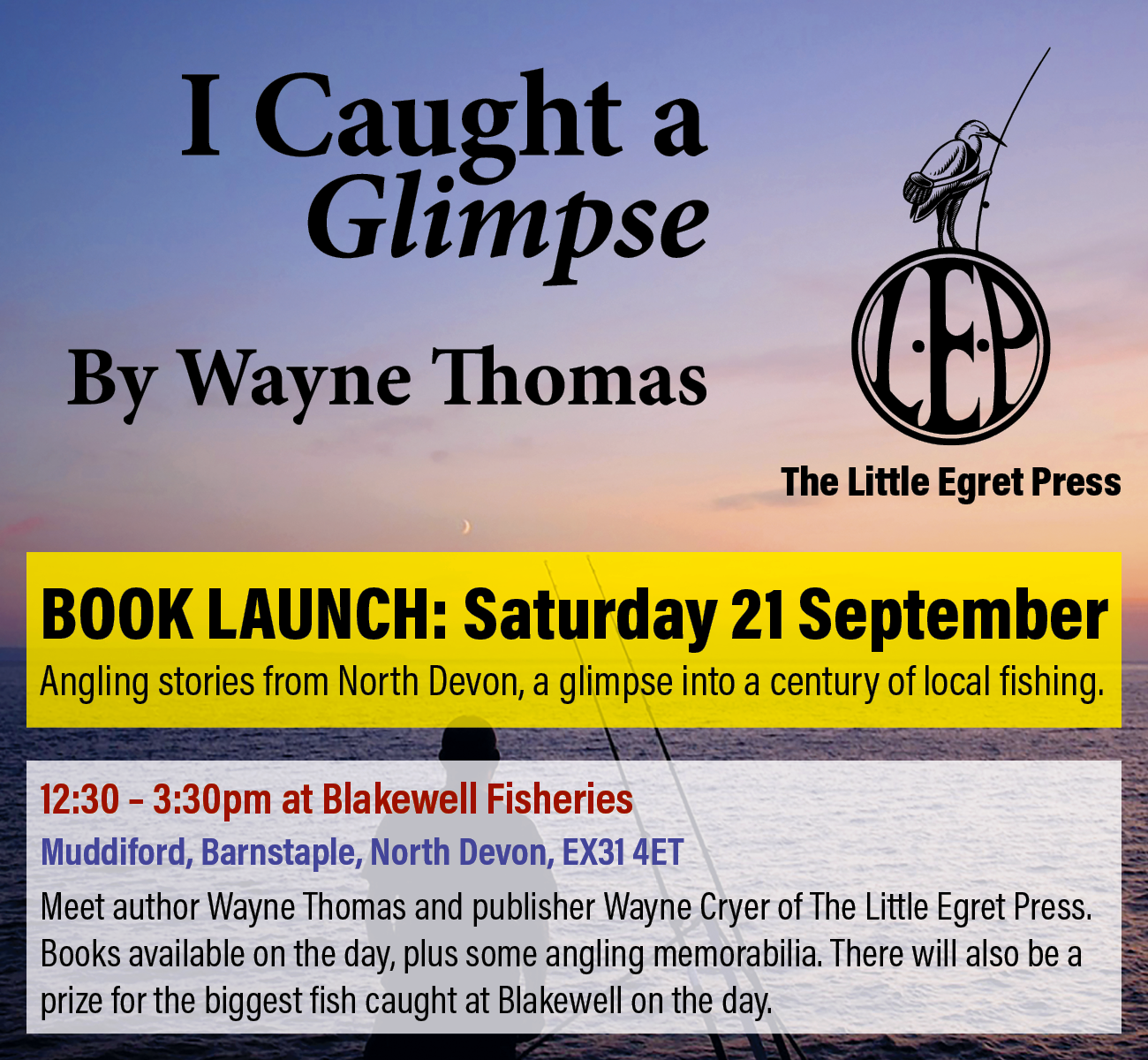

I CAUGHT A GLIMPSE – Fishing In North Devon
I have been privileged to enjoy over forty years fishing North Devon’s varied waters enjoying both success and failure. The places and the many people I have met along the way have greatly enriched the journey and as the years pass I realise that all we ever get is a fleeting glimpse of a period in angling history.
In this book I tell a few of my own stories of North Devon angling along with recollections from others; some from an earlier generation who enjoyed fishing in those good old days.
I have no favourite species of fish just the one I am fishing for at the time and this book reflects this with every discipline of angling represented. From the small crimson spotted trout of tumbling streams to the huge shark that roam the Atlantic Ocean.
Angling is in essence an attempt to reach into a different dimension. Its fascination has for me never ceased and I always believe that the next cast will be the one that connects, that marvellous moment of completed deception. The anglers I have interviewed in writing this book reflect upon past times when they too glimpsed piscatorial events that they enjoyed recalling. Stories of lost fisheries, big fish, record fish of angler’s their attitudes and love of fishing.
I hope that I manage to share and convey the joys of angling in North Devon and provide a glimpse into a century of marvellous fishing.
Just a fleeting glimpse,
Of Memories gone,
A hopeful glimpse of what may come,



(Below) last years winners
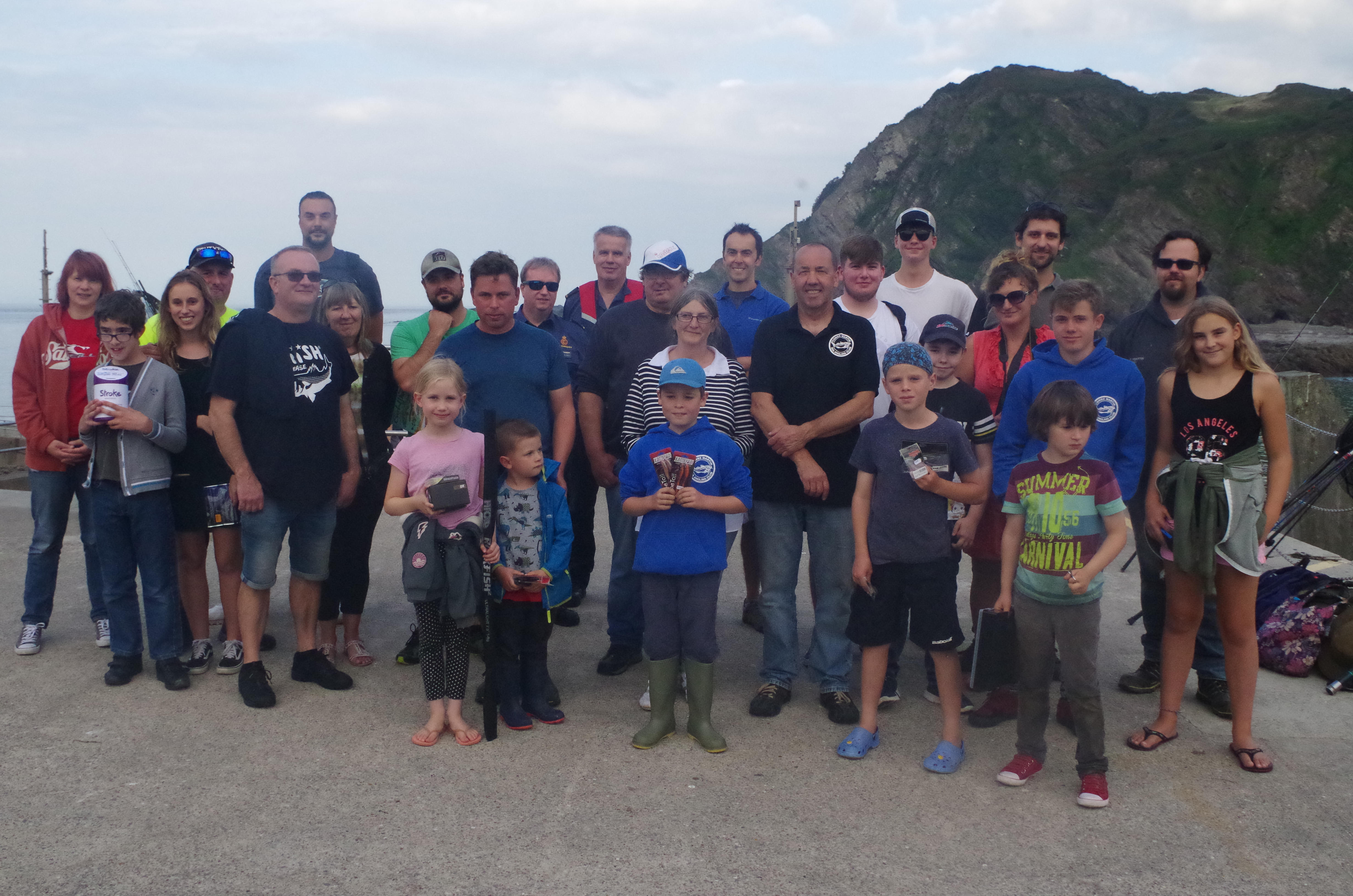
I received an enquiry from Samantha Mathews who works for Valorum Care asking if I knew of anyone who could help a gentlemen to prolong his angling experiences. I know from my interviews with several senior anglers that the passion for angling is still there years after they are forced to leave the waters edge. I am sure that the below opportunity would be very rewarding.
Volunteer Required – Can you help to enable a gentleman to continue his fishing passion?
We are looking for a person, or people, to help a gentleman continue his passion for angling. He loves to spend hours fishing and returning the fish to its environment. Due to physical disability he cannot do this without company and support. He would love the opportunity to spend time outdoors with like-minded people. You would ideally need to be a driver willing to drive one of our Valorum Foundation vehicles – for which we would give you training. We would also give training in how to support a wheelchair user and any other areas you feel useful.
We are based in Braunton but could reimburse your fuel costs to us. If this sounds like something you could do or would like to ask any questions please contact the Volunteer Co-ordinator, Sam Mathews on [email protected] or telephone 01271 815915
It would be fantastic if you could place an advert for Francois. I’m running ideas around with regards to the social meeting idea as well so please feel free to pass my details on to anybody who you think may be interested.
